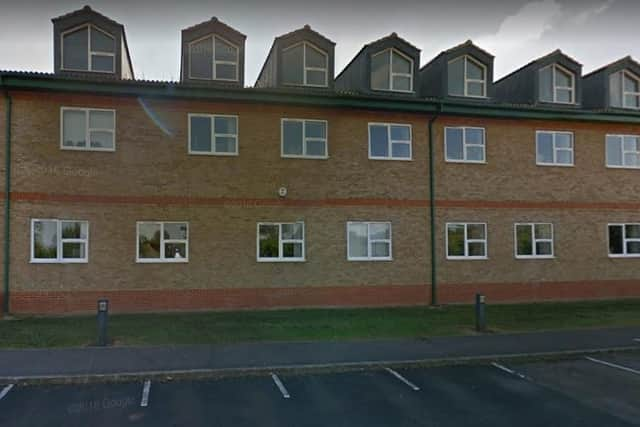Waddesdon school closed amidst RAAC concrete safety concerns
and live on Freeview channel 276
Sections of a school in Waddesdon will be closed after it was discovered that buildings at the institution used concrete deemed to be unsafe.
Waddesdon Church of England Secondary School confirmed students would be learning remotely to start the new term.
Advertisement
Hide AdAdvertisement
Hide AdReinforced autoclaved aerated concrete (RAAC) concrete has been found in its buildings, the material has been declared as unsafe by the Government.


More than 100 schools in England were told to partially or fully close by the Department for Education.
The school informed families in a letter that students will be given online lessons as a precaution.
ITV has reported that over half of the 1,000 students that attend the Bucks secondary school will be learning at home.
Advertisement
Hide AdAdvertisement
Hide AdIn its report the broadcaster states that the restaurant and sections of the main block are the areas said to be at risk of collapsing.
Raac material is considered dangerous and unsafe as it is lightweight and cheap. It was used on roofs of certain buildings between the 1950s and 1980s.
Its use on current properties was brought into focus in 2018 when a roof of a primary school in Kent collapsed without warning.
It is believed that the school in Waddesdon will be providing parents with a further update today, after taking the decision to keep students at home on Friday (1 September).
Advertisement
Hide AdAdvertisement
Hide AdBucks Council has told The Bucks Free Press that it is still assessing how many schools have used Raac.
A report authorised by the Government in 2002 found that material used to coat RAAC was likely to be compromised in 20 years. That RAAC panels could collapse without warning, when older than 20 years. And that panels in some schools did not meet building regulations of the time.
Today (4 September), the education secretary Gillian Keegan has told the BBC that as many as 1,500 schools could contain RAAC concrete.
Also, Ms Keegan added that around 10 per cent of schools had not returned a survey sent by the Government asking schools to check whether it had used the suspect concrete.